Sustrans and Inverclyde Council have unveiled three new sculptures along a much-loved section of National Cycle Network Route 75 in Greenock. From shipbuilders to a famous seal, stories of Inverclyde's past, present and future are told through striking new public artworks.
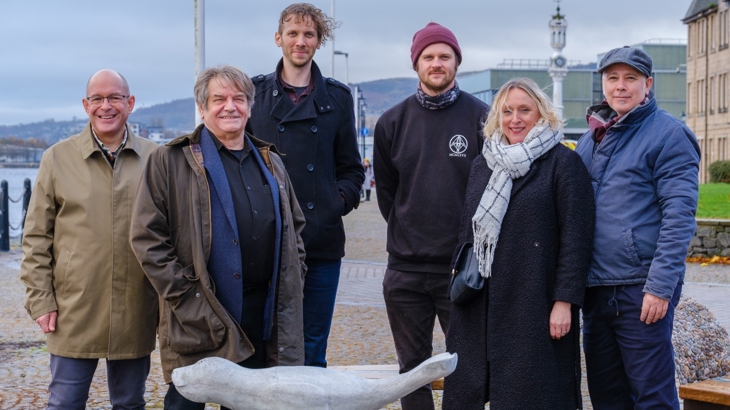
John Lauder (Sustrans), Alan Potter (Artist), Cosmo Blake (Sustrans), Tragic O'Hara (Artist), Karen Orr (RIG Arts) and Jason Orr (Artist) © Derek Mitchell/Sustrans
Inverclyde's past, present and future has been captured by three exciting new artworks along National Route 75 of the National Cycle Network.
The project known as Creative Conversations II was backed by funding from Transport Scotland and the National Lottery Heritage Fund through the Great Place Inverclyde Scheme.
Building on consultations held during 2020, local charity RIG Arts and artist Tragic O’Hara were commissioned to design and deliver the permanent artworks in partnership with the local community.
Tragic and RIG Arts partnered with local groups and individuals to create the eye-catching artworks.
It is hoped the new sculptures will encourage even more people to get active, by walking, cycling and wheeling along this well-loved route.
Three storytelling artworks
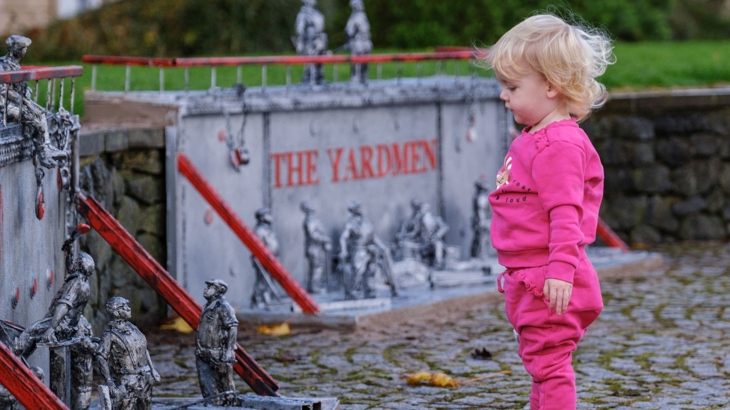
'Yardmen' by Jason Orr © Derek Mitchell/Sustrans
Jason Orr’s ‘Yardmen’ looks to the past and celebrates Inverclyde’s rich shipbuilding heritage in miniature form.
The 12-inch tall figures represent the lives and work of the ordinary people who built the Clyde coast.
They celebrate the commitment and skills of all the workers who gave their blood, sweat and tears to the shipbuilding industry.
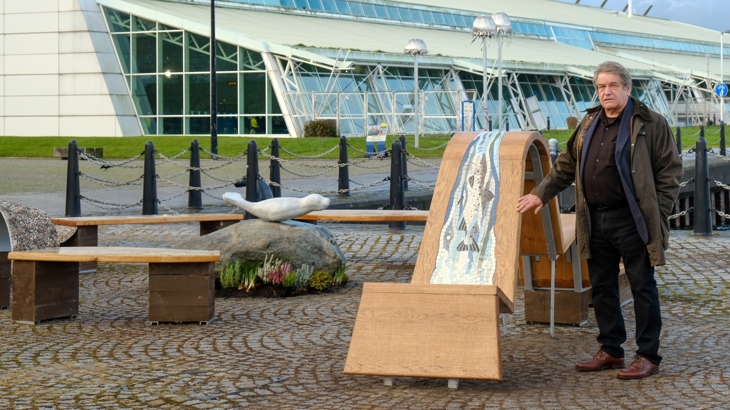
'Ebb & Flow' by Alan Potter © Derek Mitchell/Sustrans
Alan Potter's ‘Ebb & Flow’ looks to the present, celebrating the Clyde's sea and river life.
A seating installation uses shapes of kelp and sea life, with a statue of a famous local seal at its centre.
Whilst spiral seating, made from oak embedded with porcelain and pebble mosaics, shows Clyde river life, including mackerel, salmon, wrasse, flounder and crab.
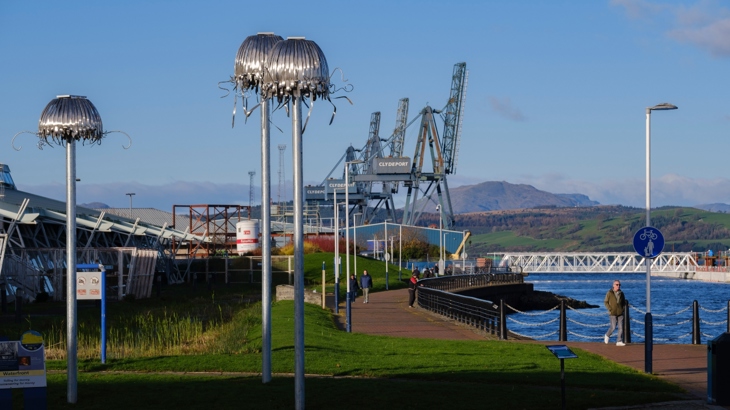
‘Mechanical Animals' by Tragic O’Hara © Derek Mitchell/Sustrans
Tragic O’Hara’s ‘Mechanical Animals’ looks to the future and offers a stark warning.
It represents what may happen if the climate and biodiversity emergencies are allowed to continue.
Three mechanical jellyfish, made from steel and perspex are each atop recycled telephone poles.
They represent a future where humans have invented robotic animals to replace species which no longer exist.
Inspiring people to explore Inverclyde
Speaking at the unveiling of the artworks, Cosmo Blake, Network Engagement Manager at Sustrans Scotland said:
"It’s crucial that we work together to make walking, wheeling and cycling the most attractive options for more journeys.
"And the National Cycle Network allows people to make happier, healthier and more sustainable choices.
"By partnering with Inverclyde Council, RIG Arts, Tragic O’Hara and local groups on this project, we wanted to empower the community to put their own stamp on the waterfront area.
"And reflect Greenock’s rich history and heritage.
“All three artworks have created exciting new points of interest along National Cycle Network Route 75.
"We hope they'll inspire many more people across Inverclyde to explore the area in a sustainable and active way.”
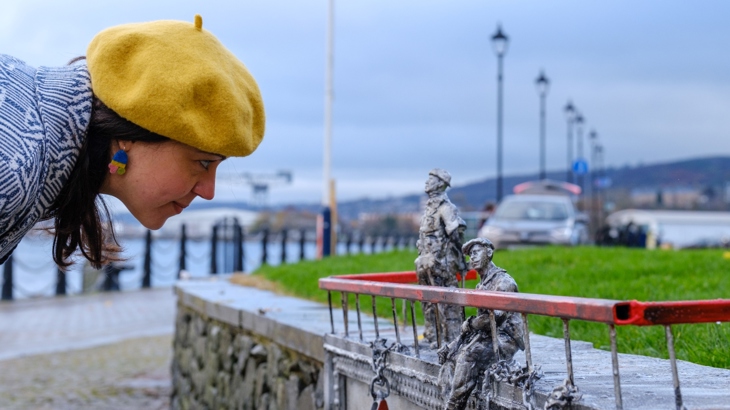
© Derek Mitchell/Sustrans
Councillor Jim Clocherty, Deputy Leader of Inverclyde Council and Convener of Education and Communities, added:
“This has been a real team effort from everyone involved to deliver vibrant and thought-provoking artworks.
"Adding extra dimensions to the already picturesque Greenock waterfront, that we hope people near and far will visit.
"Celebrating one of our greatest assets, the river, right on the banks of the Clyde itself and adding a splash of colour to this beautiful section of the National Cycle Network, will only encourage more people to Discover Inverclyde.”
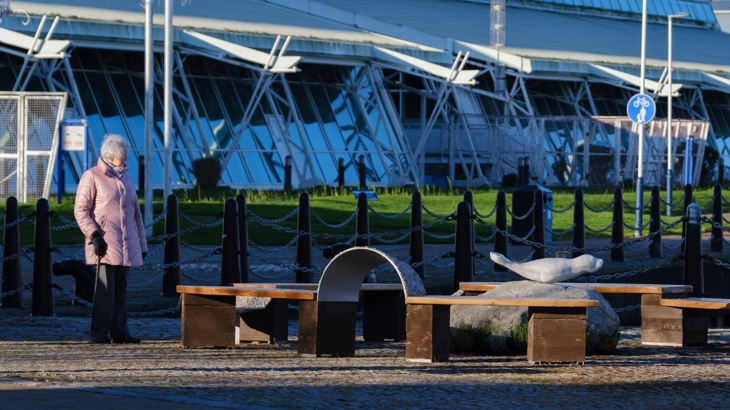
© Derek Mitchell/Sustrans
Karen Orr, Chief Executive of RIG Arts said:
“RIG Arts collaboration with artist Tragic O'Hara on Creative Conversations, was a great opportunity to work with local people to really find out what they thought about public art, and what it could and should be.
“We hope that the works will stimulate conversations and encourage visitors to the area.”





